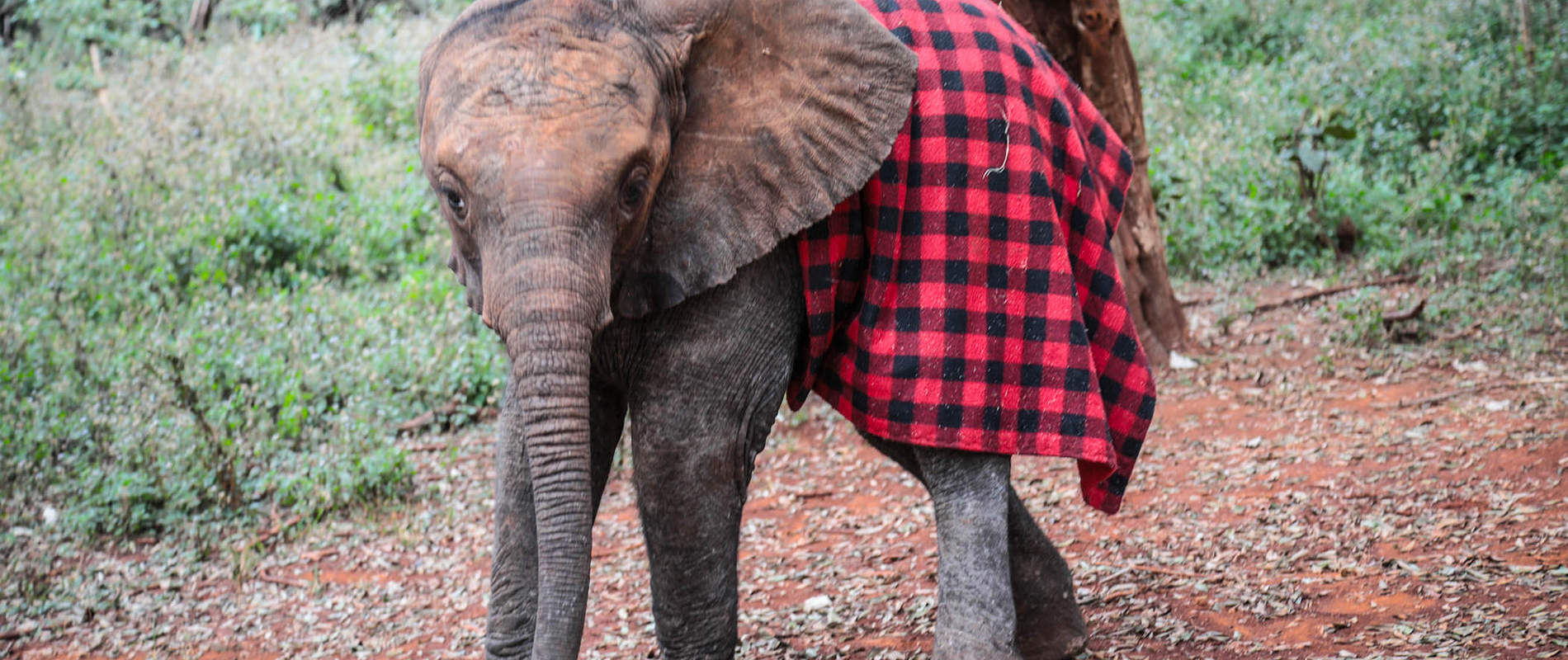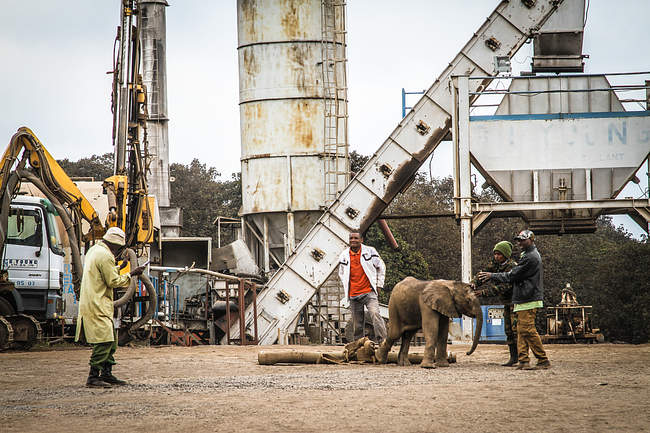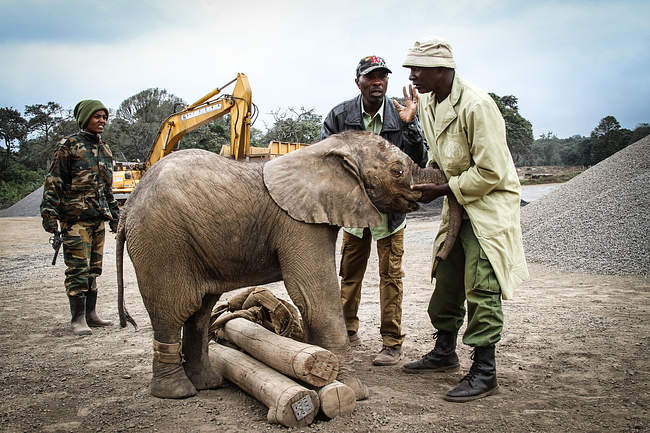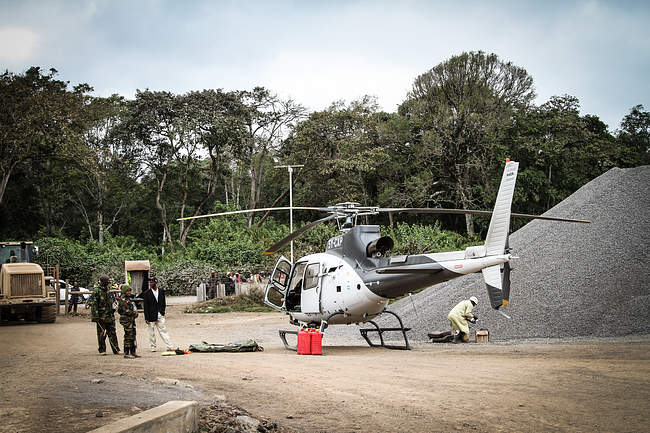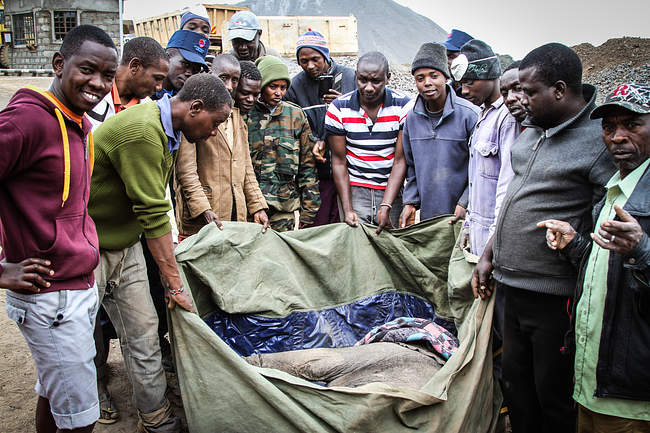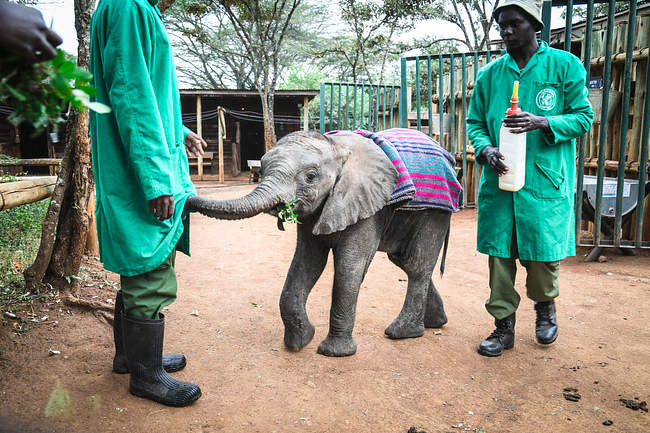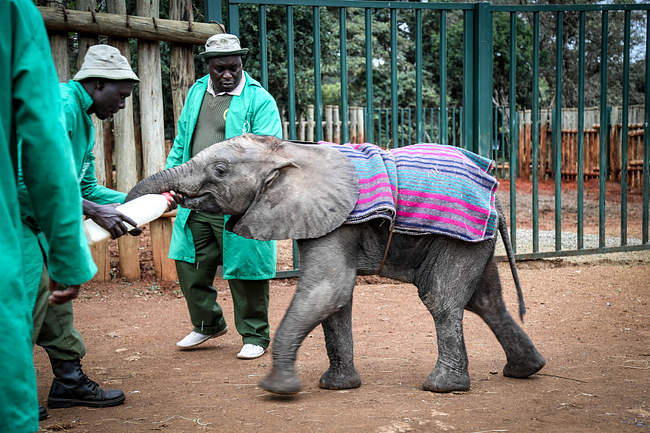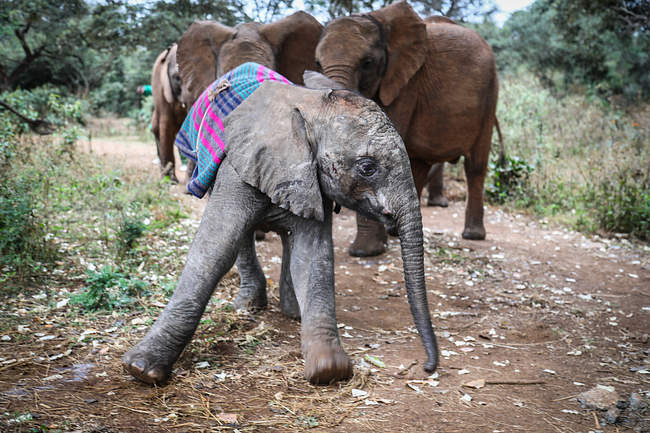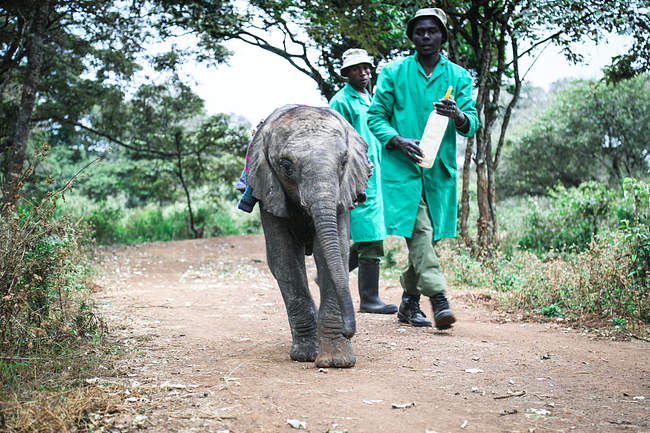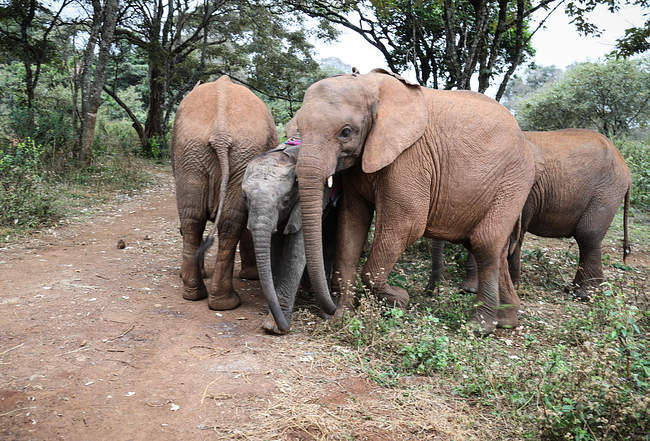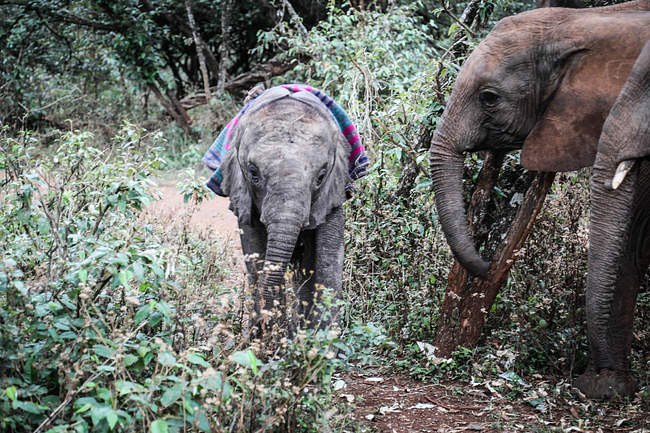Rescued from the Meru region, Merru became trapped in a deep quarry on the edge of the Imenti Forest and was set upon by people who wanted to kill him for bushmeat. Fortunately, individuals got word to KWS and rangers stepped in to protect the battered and bruised baby.
On the 1st of September 2018 we received a call from KWS regarding an elephant calf in trouble in Meru town. The baby had fallen into a deep quarry situated on the edge of the Imenti forest, but the moment he was discovered a hostile community set upon him, determined to kill and feast on the calf.
Very fortunately there were sympathetic people in their midst who got word to the Kenya Wildlife Service (KWS) Rangers in time and very quickly they responded and rushed to the site to rescue the baby, and keep him safe overnight. Circumstances were challenging and between the community and the Rangers they tethered his feet to two big logs ensuring he could not escape. He remained like this overnight.
Reports were sent to The David Sheldrick Wildlife Trust (DSWT) by KWS in the early morning and Angela was able to communicate with the KWS county Warden and learn more about the circumstances surrounding the calf’s plight. There were many logistical challenges given his location with the closest airstrip being some distance away, and access to a KWS vehicle was not possible at the time.
It was therefore arranged, once GPS coordinates were provided, for the DSWT helicopter to fly directly to the site on the outskirts of Meru town with one of the Trust’s more experienced elephant Keepers on board, together with all the equipment required to feed the baby, and medicate and restrain the calf for flight.
The location where the elephant was being held was an open patch of bare land on the outskirts of the quarry, abutting the remnant Imenti forest that spills east of Mount Kenya National Park. On arrival the team were faced with a baby elephant that cut a tragic figure, having been battered and beaten by a hostile crowd before being rescued, he stood tethered to huge logs and remained with little fight left in him.
Lying him down onto the mattress was met with screams of discomfort from the obvious bruising all over his body. Immediately a tranquilizer and anti-inflammatory was administered to take the edge off proceedings and the team set about preparing him for the flight after he fed on a bottle of rehydration fluids. The KWS Rangers did an excellent job in very challenging circumstances keeping the crowd under control, as by now the interest in both the helicopter and the elephant had grown to fever pitch.
All the circumstances surrounding this rescue were extremely challenging for Andy Payne, the DSWT helicopter pilot, who directed proceedings with the assistance of the KWS Rangers who worked hard to keep everyone calm and a safe distance from the aircraft and the elephant calf.Eventually by 3.00pm the helicopter lifted off the ground and then had to navigate dramatic weather between Meru, around Mount Kenya, and then onto Nairobi, a flight of one hour.

Waiting at the Nursery were the Keepers with all the equipment required to facilitate a quick turn around and to immediately get the baby on a drip to help his energy levels. The calf was ushered into a comfortable stockade, surrounded by the calming influence of the other orphans when they returned in the evening.
Support our Orphans' Project
The stark contrast between the two environments could be felt in the elephant baby's mood, as after the drips he immediately appeared comfortable and much calmer, having fed well on milk and settled in his warm wooden stable with plenty of fresh cut hay.
After what must have been an incredibly terrifying ordeal for him, he already sensed he was around caring sympathetic friends, but the scars both physical and mental remained, because for the next week he never would sleep, instead just walking around in tight circles throughout the night, turning only to the left.
With the potential of swelling on the brain due to all that befell him, it was difficult to know the exact reason behind this behavior. We persevered in the hope that tender loving care, time and decent nourishment would set him in good stead. We had a specialist come in to check his eyes to see if all was well with them, and were assured his eyes were fine. Angela arranged for him to immediately join the other orphans out in the forest the next day, and he was able to walk straight with them for extended periods of time, comforted by their attentive presence enormously.
Nevertheless he would still stop intermittently and begin walking in circles. Each day that passes this behavior reduces. This is not the first time we have seen this, and thankfully in the past the previous cases have corrected in time as well. We have called the baby bull elephant, estimated to be approximately 9 months old, Merru - the name of the area he was rescued from with a slight tweak to the spelling.
